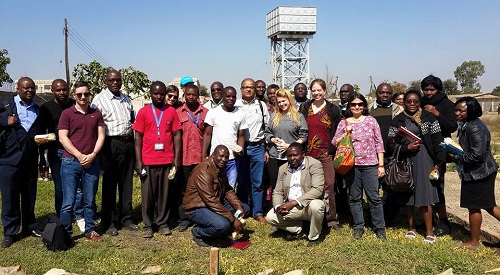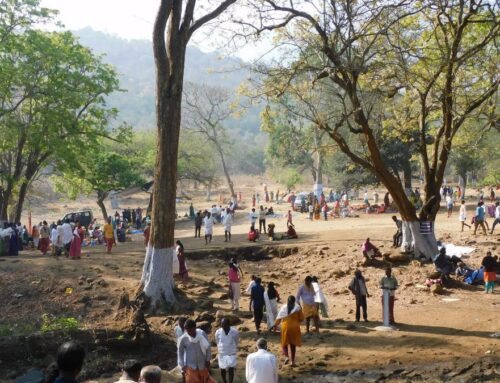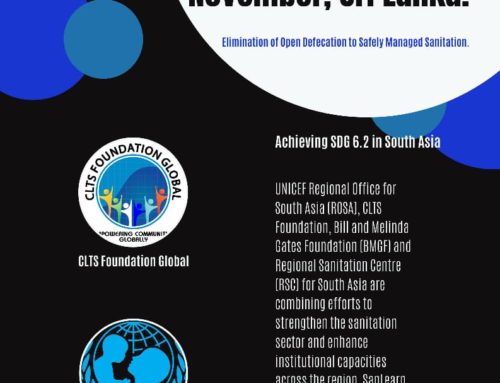
Community-led Total Sanitation (CLTS) approach was introduced in Zambia in 2007 and it is currently being implemented in 68 of its 92 rural districts by the Ministry of Local Government and Housing, under the National Rural Water Supply and Sanitation Programme, and with support from UNICEF and the government’s local NGO partners. Till now, 16 chiefdoms have been declared open defecation free (ODF) and one district (Chienge) was declared ODF this year. Despite the major strides taken in rural sanitation, urban sanitation has been reeling under a lot of pressing challenges. According to WHO/UNICEF Joint Monitoring Programme (JMP) for Water Supply and Sanitation Report ( 2015 update), the percentage coverage of improved sanitation in urban areas has decreased from 59% in 1990 to 56% in 2015, which is in contrast to rural Zambia where it increased from 29% to 36% during the same period.
One of the major challenges of urban sanitation in Zambia is the lack of adequate number of toilets. In some peri-urban settlements, such as Kanyama in Lusaka, nearly/more than eight households use one toilet and as result the latrine pits fill up fast, thus posing a major health risk if not emptied on time. As most of the properties are owned by landlords, the tenants cannot take appropriate steps on their own as they don’t have legal ownership. To make it worse, the landlords are apathetic towards providing proper sanitation and drinking water facilities and don’t give priority to invest in construction of good toilets or timely emptying of pits. According to Dr Giveson Zulu, WASH Specialist, UNICEF Zambia , the government in partnership with NGOs had built Ecosan toilets in Kanyama, but it was not accepted by the community due to their reluctance to ‘touch’ shit.
Later with support from Water and Sanitation for Urban Poor (WSUP), BORDA and WASAZA, a bio-digester plant was built at the Kanyama Water Trust. There are forward plans to expand the programme and build 10 more digesters to ensure safe sanitation facilities in Kanyama.
At present, only 2,000 toilet owners out of the 5,100 toilet owners have agreed to participate, while the rest have not come forward due to fears that pumping out the solid waste could damage their toilets. A series of meetings and workshops were conducted with community members and other stakeholders of this programme in which Dr Kamal Kar, Chairman, CLTS Foundation participated.

On July 20, 2015 the CLTS Foundation, Kanyama community, Kanyama Water Trust-pit emptiers, Lusaka City Council, Institute of Development Studies (IDS), UNICEF Zambia, University of Zambia, Ministry of Health, Ministry of Community Development and Mother and Child Health, and University of Galway representing the Consortium, GIZ, WASAZA, Africa Call, Kasisi, EcoZambia, etc, participated in an Urban Sanitation Stakeholder Consultation for developing a sustainable Sanitation Value Chain in Zambia.
The community members during the meeting they said that they can afford to pay for better toilets but due to lack of co-operation from the landlords they are facing difficulties. It was discussed by all the stakeholders that in Kanyama CLTS Legal Enforcement Approach will be used to trigger landlords into action and fast-track courts will be set up to resolve disputes.
With inputs from Dr Giveson Zulu, WASH Specialist, UNICEF Zambia
Date: July 23,2015




Leave A Comment